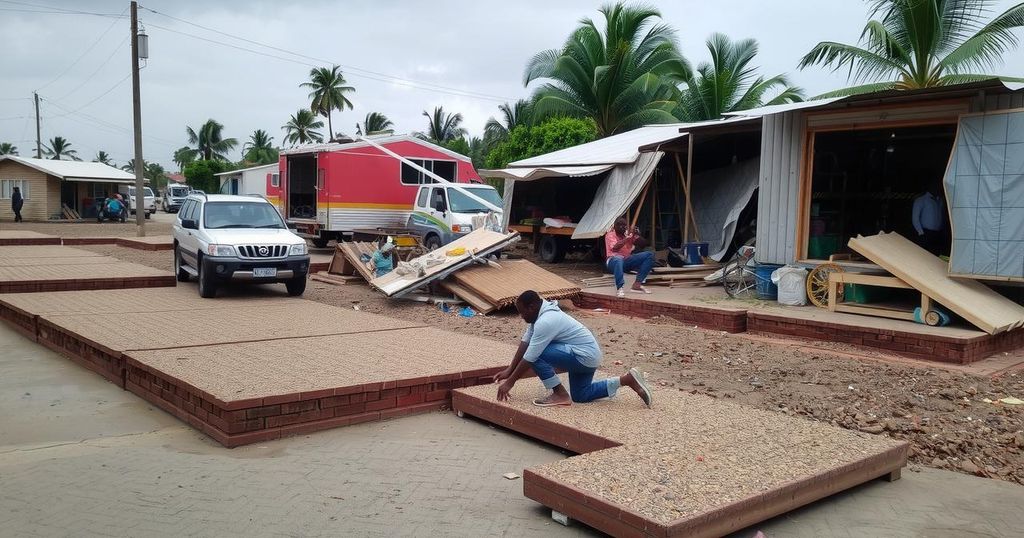The U.S. Government, via USAID, is providing $450,000 in aid for recovery efforts in Mozambique following Tropical Cyclone Chido’s devastation. The funding will focus on critical needs like shelter and sanitation in Cabo Delgado province, with implementation led by organizations such as ADRA and CARE International. The U.S. remains committed to assisting Mozambique during this crisis.
The United States Government, through the United States Agency for International Development (USAID), is allocating $450,000 (approximately 29 million meticais) to facilitate emergency aid operations following the devastation caused by Tropical Cyclone Chido in Mozambique on December 15. This funding will primarily support critical needs related to shelter, water, sanitation, and hygiene (WASH) in the affected areas, particularly in Cabo Delgado province. The Adventist Development and Relief Agency (ADRA) will implement one of the grants, while additional rapid response efforts will be undertaken by CARE International. Furthermore, USAID’s humanitarian partners are mobilizing resources to address the immediate needs of the victims.
The cyclone inflicted severe damage, leading to loss of life, injuries, and destruction of homes and infrastructure. Initial assessments suggest that the most significant impacts were felt in southern Cabo Delgado province and adjacent regions. Assessments are ongoing to gauge the full extent of the disaster’s aftermath, with the United States Government collaborating with the National Institute for Disaster Risk Management and Reduction to coordinate cyclone response efforts.
U.S. Ambassador Peter H. Vrooman emphasized the urgency of providing assistance to those affected by Cyclone Chido. He stated, “The United States Government recognizes the enormous challenges faced by those affected and wants to reaffirm our solidarity. Our assistance will provide vital aid to the people most impacted by the cyclone, helping to alleviate human suffering and support recovery efforts.” The commitment of the United States Government to assist Mozambique during this crisis reflects its dedication to enhancing the country’s resilience against future natural disasters.
Tropical Cyclone Chido struck Mozambique on December 15, bringing heavy rains and strong winds that wreaked havoc, particularly in Cabo Delgado province. The cyclone resulted in tragic losses, including lives and infrastructure, prompting an urgent international relief response. In the wake of such disasters, assessments play a crucial role in identifying and addressing the needs of affected communities, which often struggle to recover from the destructive impacts of natural calamities. The ongoing efforts by various organizations, alongside governmental support, are vital to restoring normalcy and ensuring resilience against future disasters.
In conclusion, the United States Government’s timely allocation of $450,000 for recovery efforts following Tropical Cyclone Chido is a significant step toward addressing the urgent needs of affected populations in Mozambique. Through partnerships with organizations like ADRA and CARE International, this aid aims to enhance shelter, sanitation, and hygiene, ultimately alleviating the suffering caused by this calamity. The collaborative efforts underscore a commitment to humanitarian support and disaster resilience in Mozambique.
Original Source: clubofmozambique.com






